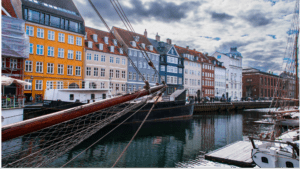Varvara Tkachenko
Contributor
Kyiv, Ukraine | Copenhagen, Denmark
Born in 2007 in Kyiv, Ukraine, Varvara studies in Copenhagen, Denmark and plans to pursue her bachelor’s degree at the University of Amsterdam in the PPLE (Politics, Psychology, Law, and Economics) program.
She is interested in music, travelling, snow sports, Ukrainian culture, politics, and movies, For Harbingers’ Magazine, she writes about music, movies, culture, and sports.
In her free time, Varvara enjoys snowboarding, playing piano, crocheting, knitting, and horse riding. She also studied in France for a year, learning the language, and has been participating in debates for three years, from traditional debating formats to Model United Nations (MUN).
Varvara speaks Ukrainian, English, French, and Russian.






